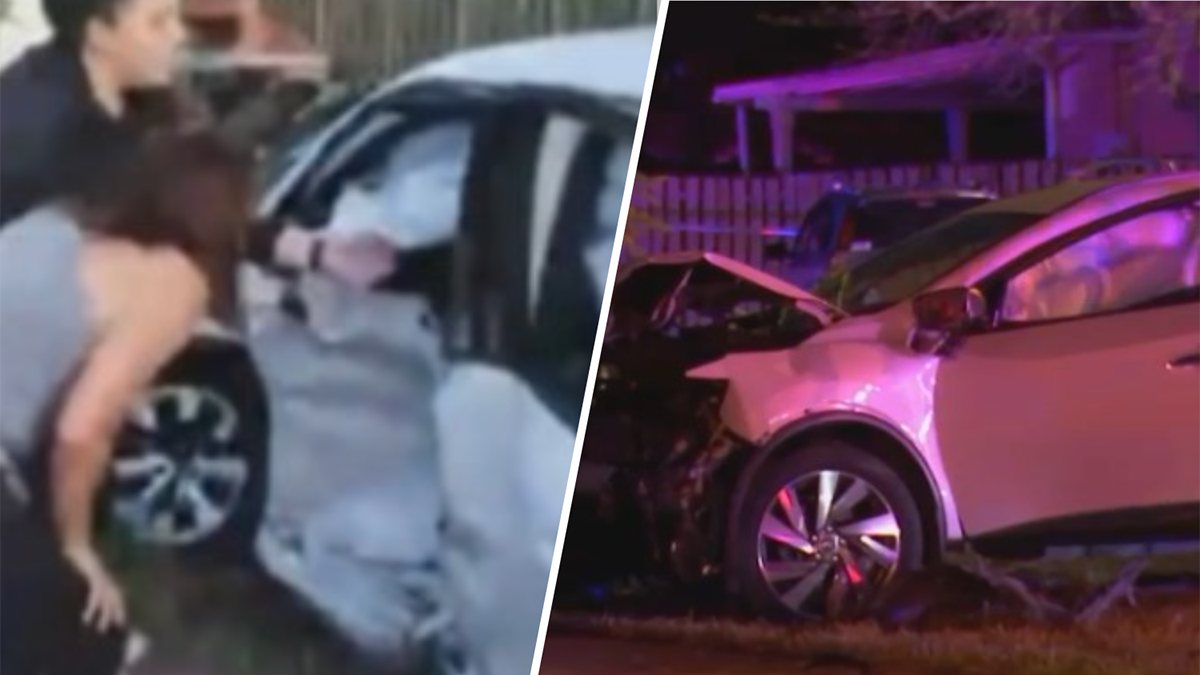What to Know
- Florida's gun and mental health laws likely could not have prevented school shooting suspect Nikolas Cruz from buying an AR-15
- Only if Cruz, 19, had been adjudicated mentally ill by a judge or convicted of a felony would he have been ineligible to buy a gun
- Cruz was never committed under the Baker Act, convicted of a crime or adjudicated mentally ill
Florida's gun and mental health laws likely could not have prevented school shooting suspect Nikolas Cruz from buying last year the semi-automatic rifle authorities say he used to kill 17 people even if they had applied to him, the state commission investigating the shooting learned Thursday.
Robin Sparkman, chief of the state's Firearm Eligibility Bureau, told the Marjory Stoneman Douglas High School Public Safety Commission that even if Cruz had been subjected to an involuntary, three-day mental health evaluation under a state law called the Baker Act, he still could have bought the AR-15 allegedly used in the Feb. 14 massacre.
Under state law before the shooting, only if Cruz, 19, had been adjudicated mentally ill by a judge or convicted of a felony would he have been ineligible to buy a gun. Cruz was never committed under the Baker Act, convicted of a crime or adjudicated mentally ill.
"So many people think the Baker Act is a magic wand — that the Baker Act cures and fixes all. The Baker Act doesn't," said Pinellas County Sheriff Bob Gualtieri, the commission's chairman. "The Baker Act is a temporary custody status for assessment. Rarely does the Baker Act result in any treatment. People think that if Cruz had been Baker Acted that this wouldn't have happened. That is flat-out erroneous. Whether he would have been Baker Acted or not is another one of those things that would have had little or no impact on what happened."
Under the Baker Act, Florida can involuntarily commit a person for a mental health evaluation for up to 72 hours — about 192,000 such commitments were made last year, about one for every 100 Florida residents.
It can be implemented if a police officer, judge, doctor or mental health official believes the person is mentally ill and is a near-term danger to themselves or others. Many are released within hours and anyone detained under the act must be released within three days unless they volunteer for treatment or a judge agrees the person needs to be committed.
Being evaluated under the Baker Act or volunteering for commitment does not make a person ineligible to buy or own a gun. School and law enforcement officials considered detaining Cruz under the Baker Act in 2016, but did not.
School and government records obtained by The Associated Press and other media shortly after the shooting show Cruz was diagnosed as developmentally delayed at age 3 and had disciplinary issues dating to middle school. In February 2014, while in eighth grade, Cruz was transferred to a school for children with emotional and behavioral issues. He stayed until 10th grade, when he was transferred to Marjory Stoneman Douglas High. He also received mental health counseling for years.
Local
About a year before the attack, Cruz was kicked out of the school after he harassed other students, had outbursts, fought and had numerous other issues. His mother called deputies about 20 times, including accusations of battery on her, but he was never arrested. His brother says he pointed a rifle at him and their mother, but they never called police for that, and other teens say he killed lizards and other animals and cut off body parts as souvenirs. The commission was scheduled to discuss Cruz's mental health record Thursday behind closed doors. Federal and state laws protect those from public disclosure.
Three weeks after the massacre, Florida changed its gun laws, implementing a system where police departments and sheriff's offices can petition a judge to block a person with suspected mental illnesses from buying and owning weapons for up to a year and then apply for extensions. It also increased the age limit for buying rifles and shotguns to 21 under most circumstances, matching the law for handguns.
The commission, which includes law enforcement, educators, a legislator, parents of slain students and others, is in the middle of a three-day monthly meeting as it examines the massacre's causes. It will issue a report by the end of the year and make recommendations to prevent future school shootings.
Cruz, a former Marjory Stoneman Douglas High student, is charged with 17 counts of first-degree murder. His attorneys have said he would plead guilty in exchange for a life sentence without parole. Prosecutors are seeking the death penalty.



